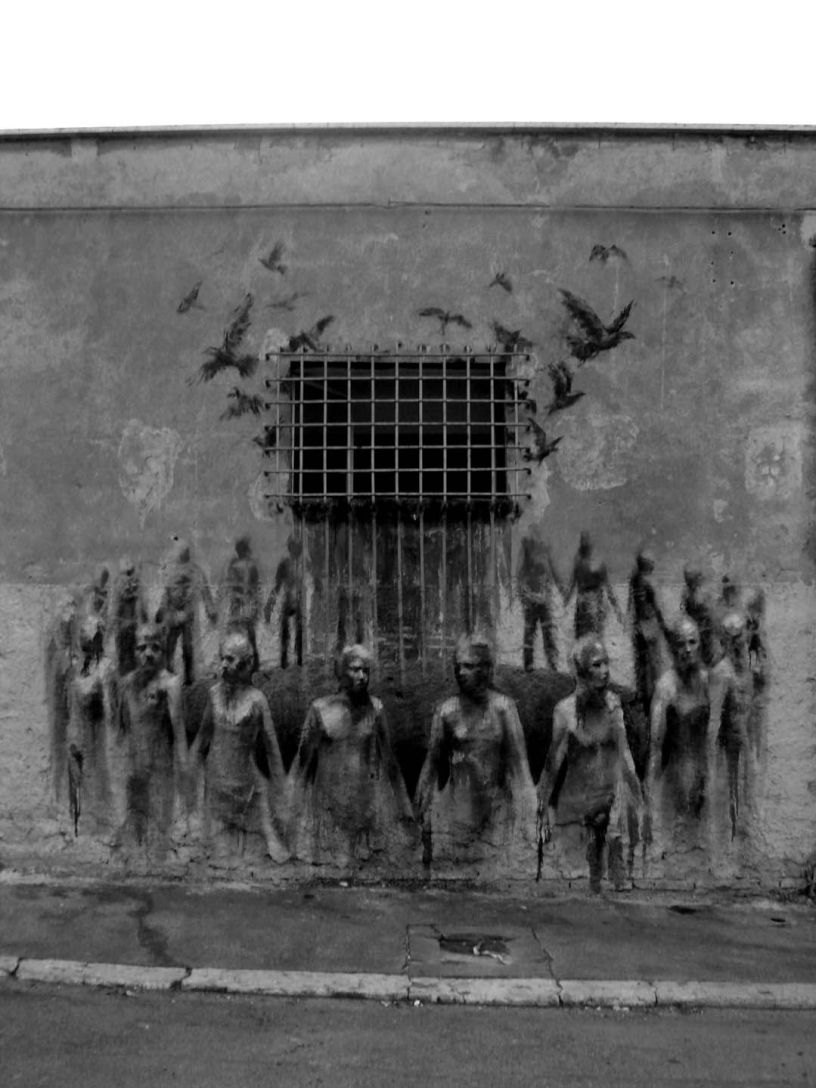

Date: July 1, 2021Author: International Law Blog1 Comment
Introduction
The legal dimensions of the prohibition of sexual violence in international criminal law have developed exponentially following the inclusion of rape as a crime against humanity in art. 5(g) of the Statute of the International Criminal Tribunal for the Former Yugoslavia (“ICTY”). Nevertheless, sexual violence against men and boys has received very little recognition by international criminal prosecutors, as evidenced by the inconsistent charging of these crimes. The aim of this submission is to provide a critique on the charging practice employed by international prosecutors in relation to sexual violence against men, from a feminist perspective. It will present the international legal framework governing the prosecution of sexual violence, followed by an analysis of prosecutors’ charging practices in regard to said framework, and, finally, provide a feminist critique on said practices.
Legal Framework
The Statute of the ICTY penalises the crime against humanity of rape in art. 5(g). In the Kunarac case, the ICTY defined rape as “the sexual penetration, however slight: (a) of the vagina or anus of the victim by the penis of the perpetrator or any other object used by the perpetrator; or (b) of the mouth of the victim by the penis of the perpetrator, where such sexual penetration occurs without the consent of the victim”[1].
For its part, the Statute of the International Criminal Tribunal for Rwanda (“ICTR”) penalizes rape both as a crime against humanity in art. 3(g), and as a breach of art. 3 common to the Geneva Conventions in art. 4(e). In the Akayesu case, the ICTR defined rape as the “physical invasion of a sexual nature, committed on a person under circumstances which are coercive”[2].
Lastly, the Rome Statute of the International Criminal Court (“ICC”) criminalizes rape and other forms of sexual violence, such as enforced prostitution or sexual slavery, as crimes against humanity in art. 7(g) and as war crimes in the context of both international and non-international armed conflicts in art. 8(2)(b)(xxii) and art. 8(2)(e)(vi) respectively.
The Prosecutorial Practice Relative to Sexual Violence Against Men
Notwithstanding the fact that none of the aforementioned instruments make any distinction as to the sex of the victim, sexual violence against men has been indicted under a myriad of treaty provisions that do not acknowledge the sexual element of the crime. Whereas forty percent of all cases involving sexual violence heard by the ICTY concerned sexual violence against men, the ICTY has only charged sexual violence as rape six times in relation to men, and 21 times in relation to women.[3]
Forced fellatio between men was charged under the crime against humanity of rape in Češić, as cruel and inhuman treatment as a violation of the laws and customs of war in Mucić, and as torture and inhumane treatment as constitutive of the crime against humanity of persecution in Simić[4]. Forced anal rape between men has been charged as constitutive of the crimes against humanity of torture and persecution in Simić and as constitutive of persecution in Krajisnik[5].
Moreover, in relation to the decision of the ICTY prosecutor to indict forced fellatio between men as cruel and inhumane treatment in Mucić, the Trial Chamber has noted that this “act could constitute rape for which liability could have been found if pleaded in the appropriate manner”[6]. These inconsistencies in terms of charging denote the existence of a pattern whereby “men appear to testify to conflict and women testify to rape”[7].
A Feminist Critique on the Charging of Male Sexual Violence in International Law
The fact that the relevant Statutes make no textual distinction regarding the gender of the victim of sexual violence reflects the formal legal equality of victims in international criminal law. Nonetheless, an analysis of the core documents of international humanitarian law, which have been consequential in the development and interpretation of international criminal law, reveals a reinforcement of “regulatory ideas” in the understanding of what “sexual” entails[8].
The earliest international humanitarian law provision prohibiting rape, art. 3 of the Geneva Convention of 1929, states: “[w]omen shall have to be treated with all regard due to their sex”, which reveals an understanding by the drafters of wartime sexual violence being relevant only as an act against women[9]. Ever since, it has been argued that international humanitarian law persisted in dichotomizing men as victims of the “public” manifestations of war, such as torture, and women as victims of the “private” manifestations of war, such as rape[10]. Such conclusion is further buttressed by the argument that international humanitarian law is normatively informed by men’s perception of war victimhood[11].
It is to that effect that the “regulatory ideas” underpinning international humanitarian law consolidate a paradigm whereby outrages upon the male body, such as torture or inhumane treatment, correspond to harm inflicted upon an active combatant, and outrages upon the female body, such as rape and sexual violence, correspond to harm inflicted upon a passive receiver[12]. Central to this construction is the notion of masculinity, which Ruiz proposed to conceptualise as an aggregate of two intertwined concepts, namely power and heterosexuality[13]. Male victimhood of sexual violence therefore reflects a subversion of this paradigm, as is apparent in the previously posited interpretation of rape by the ad-hoc tribunals, whereby conceptualizing rape in reference to “circumstances which are coercive” in Akayesu centralizes the deprivation of one’s power, and the reference to “sexual penetration” in Kunarac centralizes the deprivation of one’s heterosexuality.
The failure of international prosecutors to charge sexual violence against men as such is tantamount to silencing their experiences as a consequence of the inconceivability of the previously described heteronormative and patriarchal paradigmatic shift[14]. The prosecutorial practice of ascribing to sexual violence against men the legal dimension of non-sexual crimes corresponds to an attempt to reinstate the dichotomizing archetype of international humanitarian law whereby men are victims of a “public” war and women are victims of a “private” war. As such, their practice is akin to an endeavour to “restore” the victims’ masculinity and heterosexuality, notwithstanding that, on the one hand, such attempt is oblivious to the experience of the victims and is conducive to a prolonged re-embedding of the “regulatory ideas” of patriarchal domination and heteronormativity on the other.
Nevertheless, the responsibility for this practice reaches further than prosecutorial decision-making. The reluctance of some victims to acknowledge the sexual nature of the harm they have incurred in, and to testify accordingly, may distort the ability of prosecutors to defend a sexual charge effectively[15]. In addition, investigators and humanitarian personnel may operate in the same heteronormative and patriarchal paradigm as described above, and thus further confound the assessments and evidence that prosecutors have at their disposal[16]. Liberation would therefore entail an involvement with several domains of international criminal prosecution and adjudication beyond prosecutorial decision-making.
Conclusion
To conclude, it is implausible that international criminal justice will be able to liberate itself from such structures of domination insofar as male victimhood of sexual violence is not properly recognized and charged, and the genuine experiences of the victims are further forfeited in the attempt to perpetuate the paradigmatic consolidation of gender norms. Additionally, in light of the challenges identified above, it is paramount that international criminal tribunals take a holistic approach to liberating from these ingrained structures of domination, as only thus will change be realizable. Whereas the mandate of most international criminal tribunals has either concluded or is approaching conclusion, the ICC, as the only permanent international criminal court, bears even more responsibility towards ensuring the effectiveness and unbiased character of international criminal justice. It is therefore incumbent upon the ICC to rectify these inconsistencies by means of adopting a consistent policy in regard to the charging of sexual violence against men.
